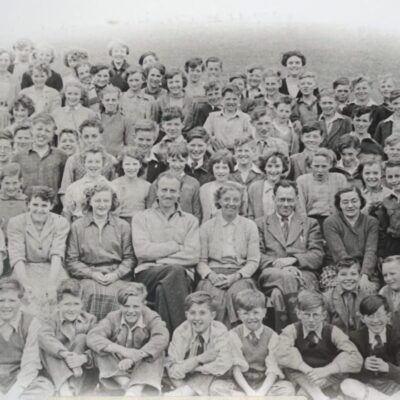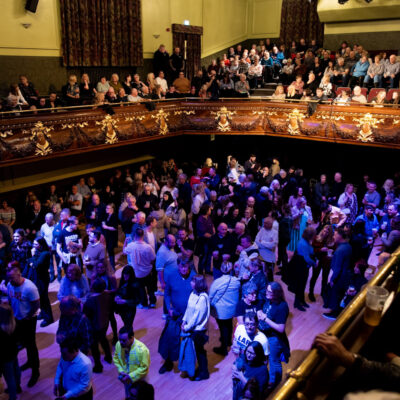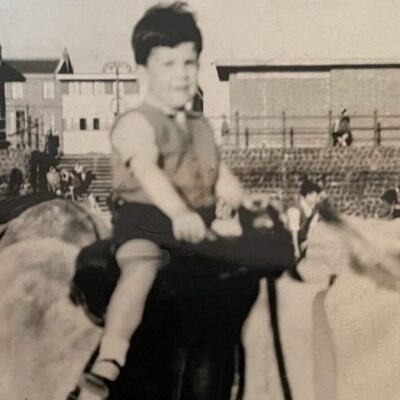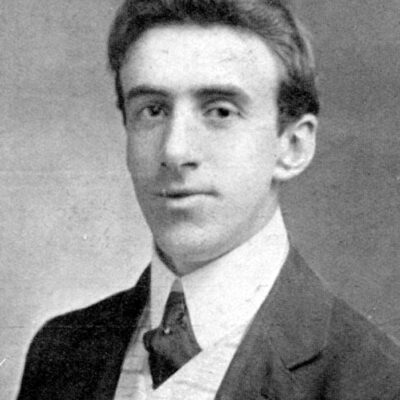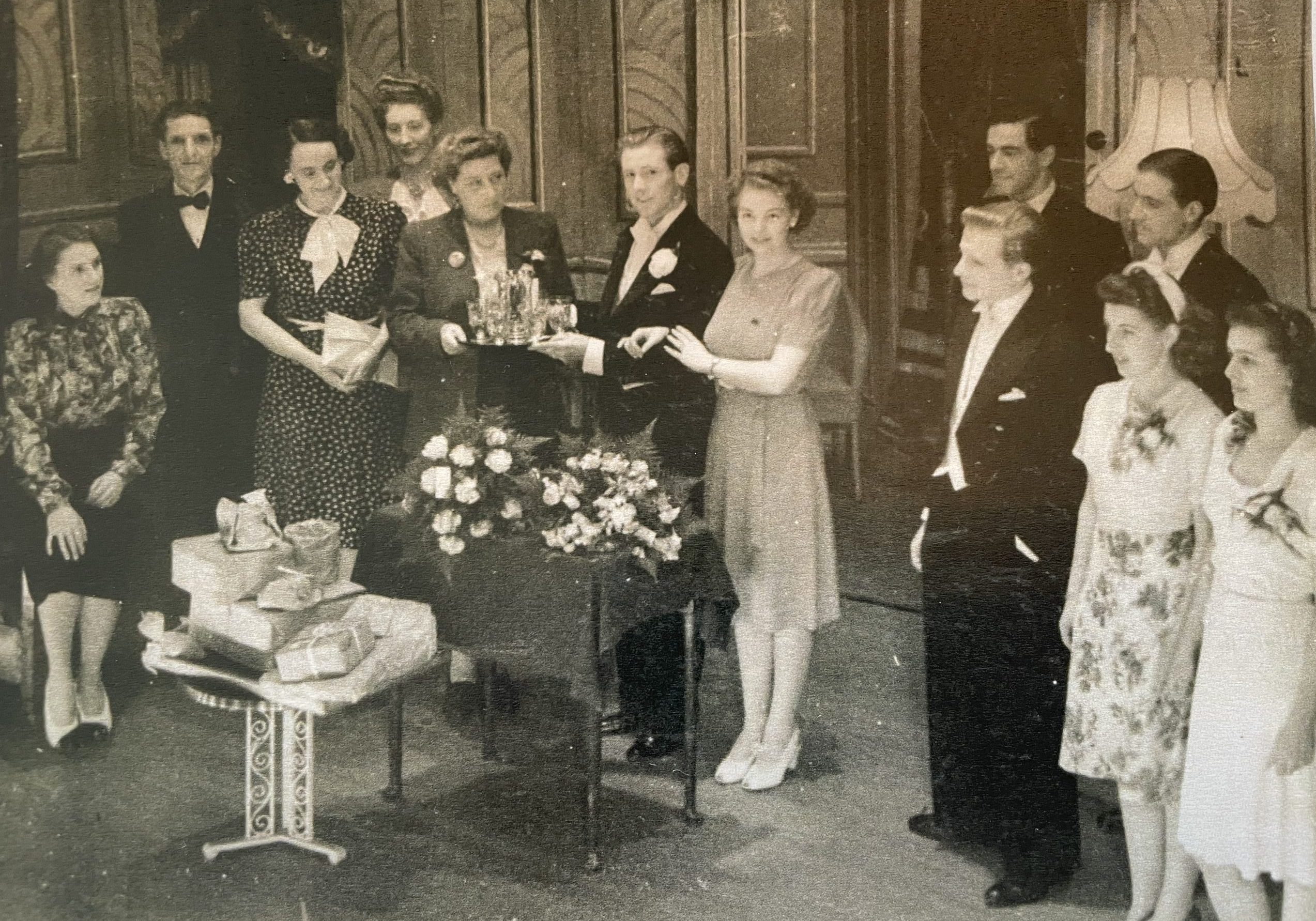
Travelling Troupes: The Actors Who Came to Colne
by Laura Storey
TAKE ANOTHER STROLL DOWN MEMORY LANE WITH RESIDENT HISTORIAN GEOFF CRAMBIE AS HE REMINISCES ABOUT THE THEATRE TROUPES THAT STAYED AT HIS HOUSE DURING SUMMER SEASONS AT THE MUNICIPAL HALL
In the post-war years, the Crambie family threw open the doors of their home to provide digs to groups of travelling actors performing at the Municipal Hall.
Heading up north from London, travelling actors found a home from home at No.8 Hall Street. Geoff’s parents had moved up to Colne from Coventry after their house was bombed in the Blitz.
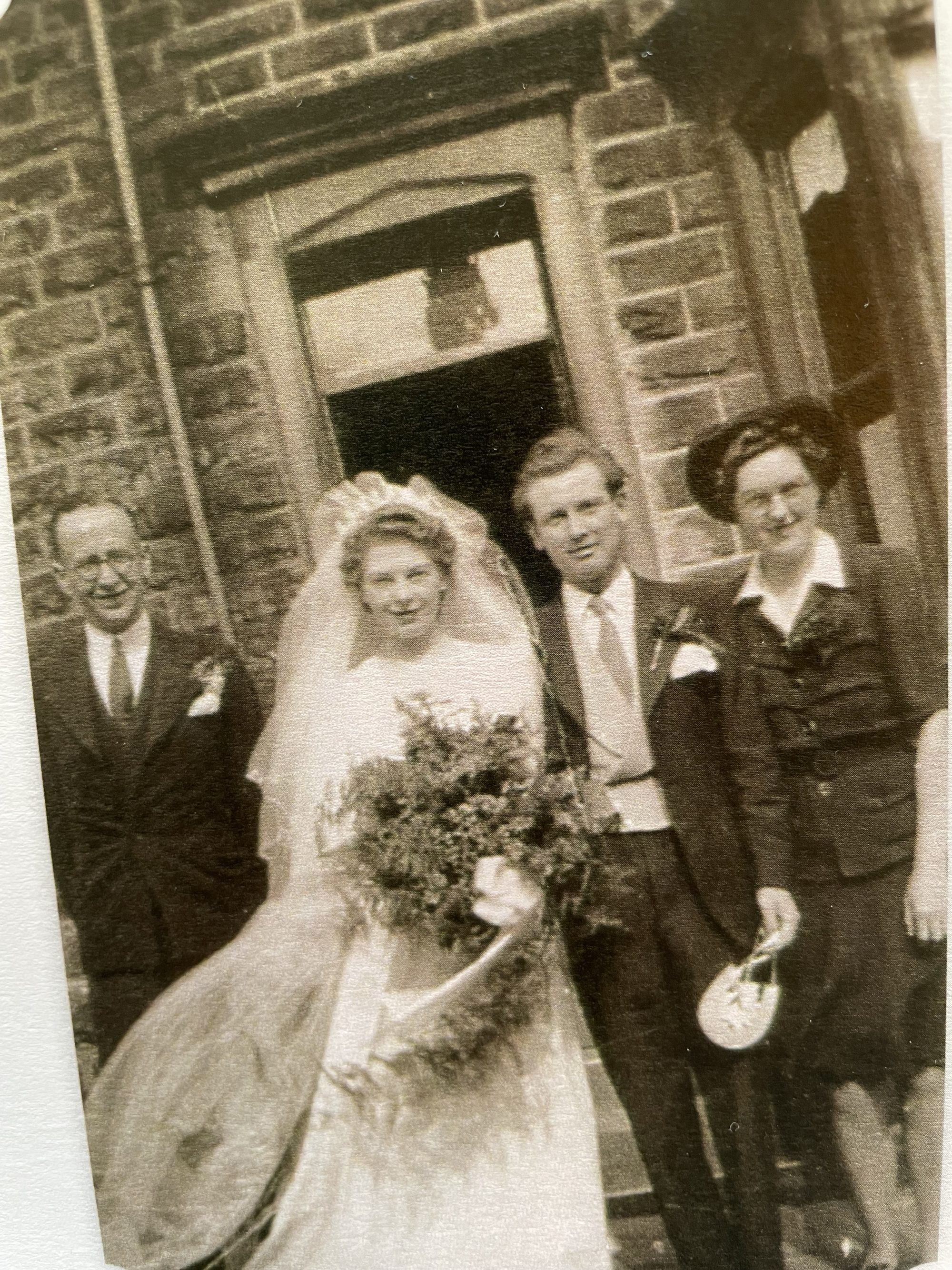
John and Dorothy on their wedding day with Geoff’s mum and dad
“They had lost everything,” Geoff explains sadly. “But they were tough in those days.” To make a little extra money, Geoff’s parents offered lodgings to the actors who arrived in Colne, fresh from the big city and ready to shine in the summer season of popular plays at the Muni. Colne welcomed a troupe of twelve actors each summer for a remarkable 18-week stay.
“I used to go to at least 10 out of 17 productions. Mum and Dad would take us because we got complimentary tickets, so we never paid,” Geoff smiles.
Amidst the glittering performances, the actors’ off-stage demeanour was decidedly untheatrical.
Despite emerging from the bright lights of London, the little northern town of Colne had something that kept the actors returning year after year. Colne was the only town outside of London that the players performed in. “They loved coming to Colne. They said they had an affinity,” Geoff smiles.
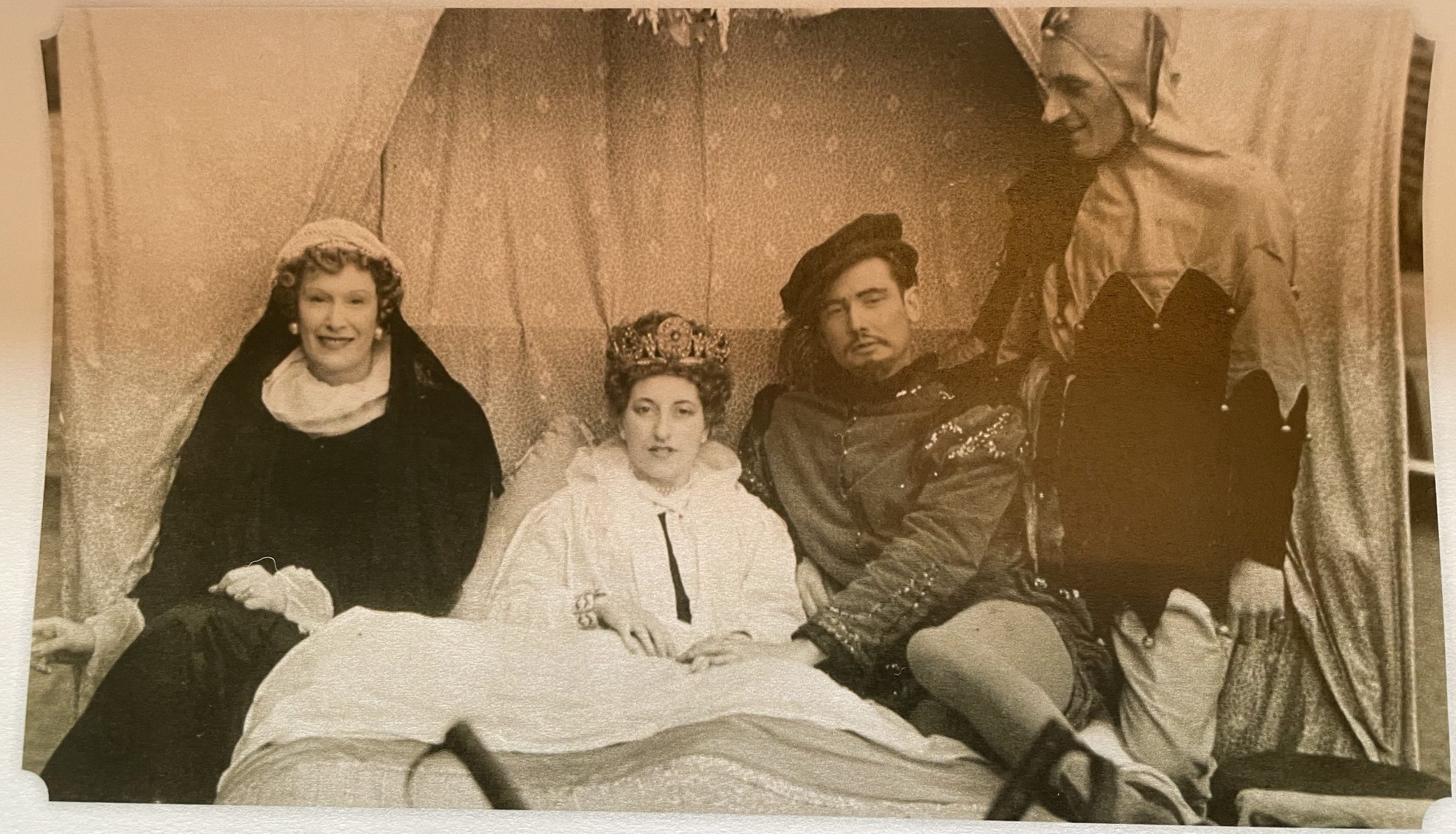
L-R Dorothy Dale-Bishop, Doreen Kelson, John Evans and Barry Anderson 1950
The theatrical journey commenced in 1946 when actor John Evans graced Colne’s stage and became a fixture in the Crambie household for five seasons until 1950. Roy Luscombe soon followed, sharing the attic with John. “My bedroom was just below; I’d hear them return after the stage shows.”
Amidst the glittering performances, the actors’ off-stage demeanour was decidedly untheatrical. Returning home after each show, they only stayed up long enough to finish supper before retiring early for rehearsals the next day. “They were professionals,” Geoff affirms.
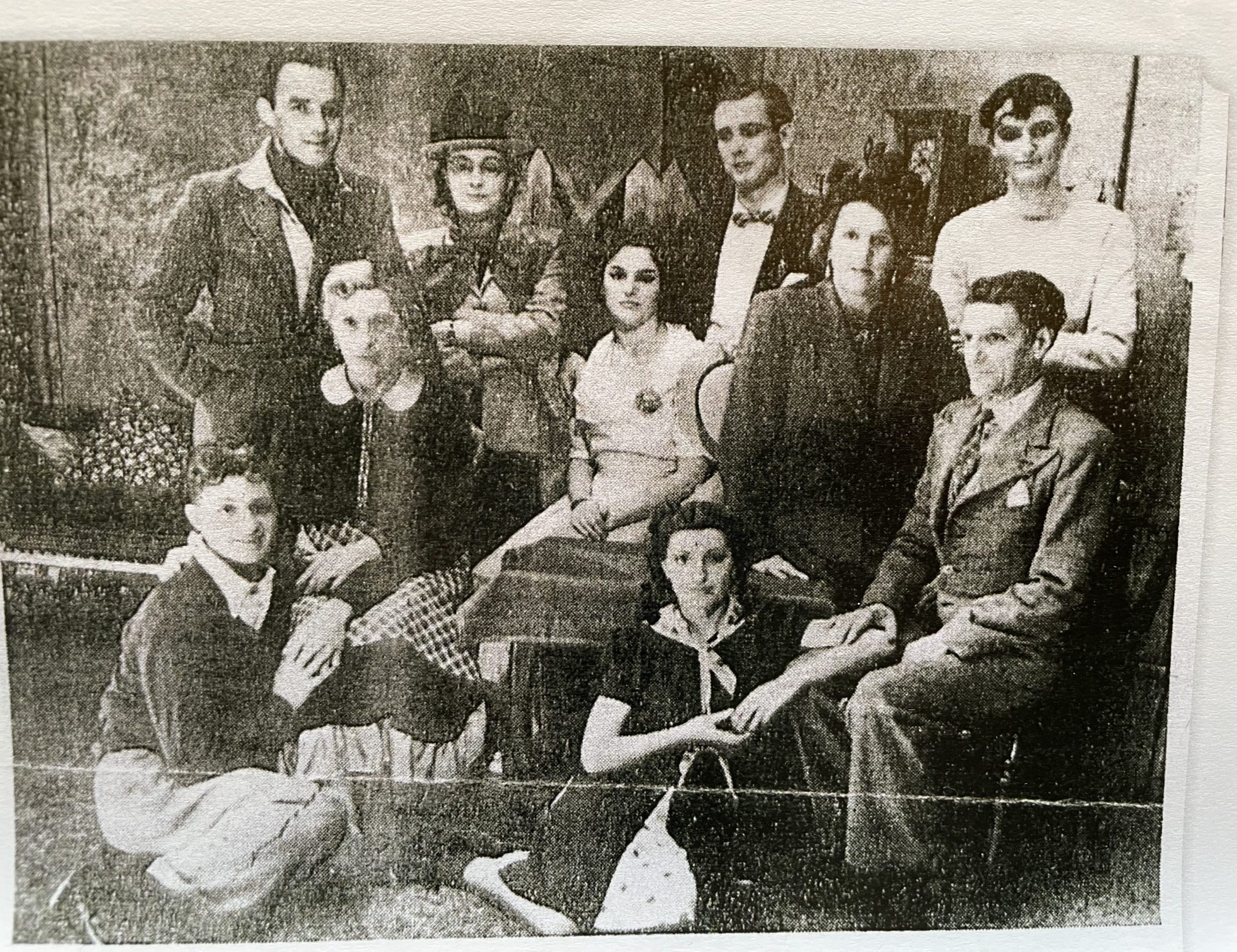
The repertory players – Photo D. C. Holmes
Despite their unassuming routines, the actors gave Colne an air of sophistication, appearing almost ‘posh’ to young Geoff. Notably, John Evans celebrated his wedding at the Crambie residence, with Geoff’s parents serving as best man and matron of honour, creating lasting memories of a splendid day.
“There were 11 curtain calls and not a dry eye in the house…”
Geoff vividly recalls the jubilant celebrations that marked each of his birthdays. After arriving in Colne with nothing, the Crambies found success with their pet shop, the Colunio Pet Stores. For each of Geoff’s birthdays, his dad would throw a party for all of the street and the players.
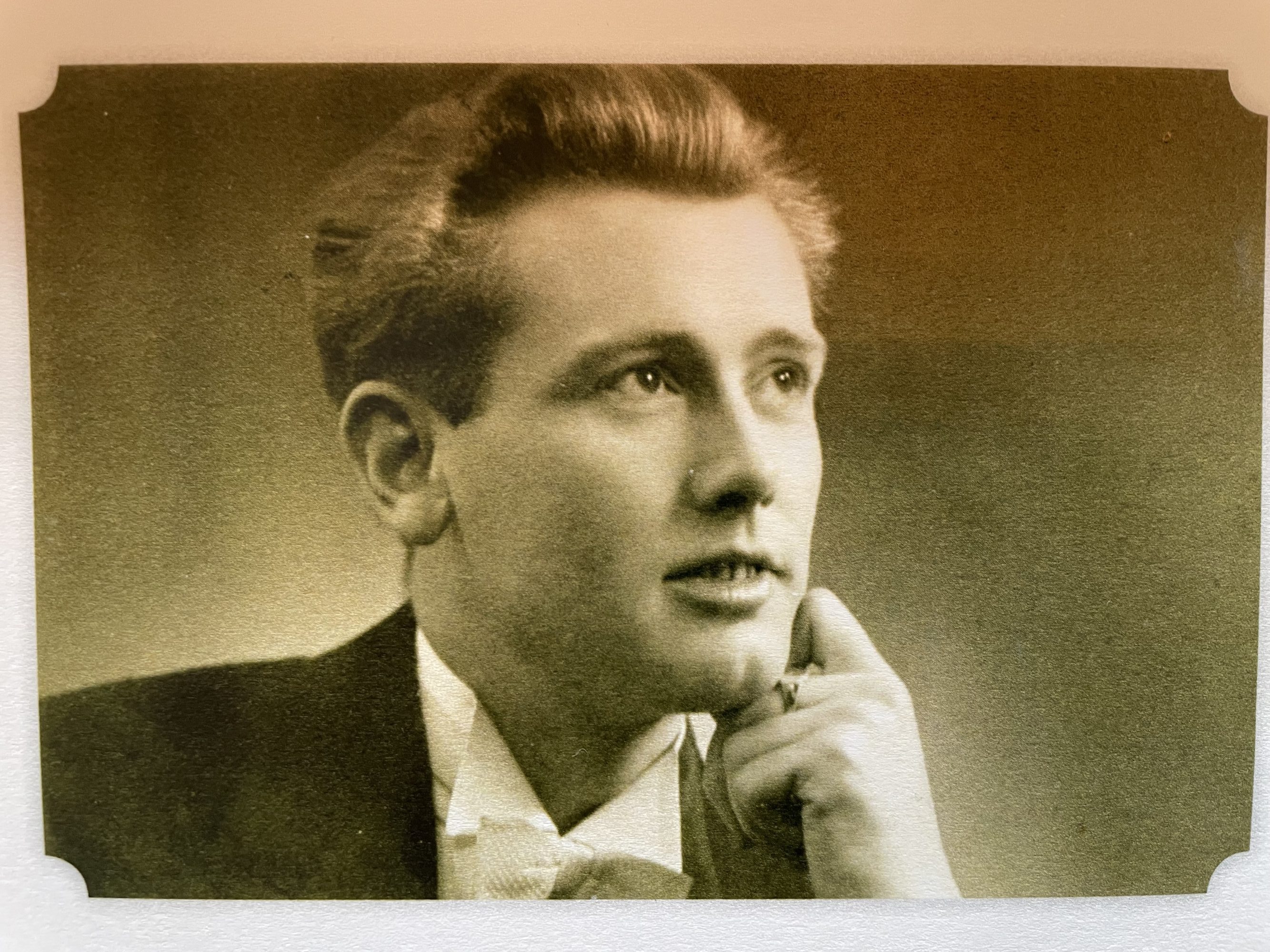
John Evans’ promo photograph
The Repertory Players’ very last season took place in the summer of 1950; Geoff kept hold of the rare “Peg O’ My Heart” programme; the play starred his lodger John Evans. The last play the Players performed was ‘Little Lambs Eat Ivy’ on Friday, 11th of August 1950. “There were 11 curtain calls and not a dry eye in the house as Bonnie Colne bid farewell to these celebrated performers of those postwar years.”
After the final bow, John Evans returned to London, where he became a celebrated theatre and radio actor. “All our family were most proud
to have our friendship with John and his family,” Geoff smiles. As well as a glamorous headshot John posted to the family following his success, Geoff has even more mementoes from John and his friends, including lead animal toys bought for little Geoff from Colne Market for a shilling each. The players bought him about 80, and he’s kept them since 1948.
Geoff’s collection also includes various programmes from the Repertory Players’ shows, a colourful testament to the dozens of performances that once captivated audiences. “They were marvellous,” Geoff beams. “I am so glad these have survived. I don’t know if anyone else kept them.”
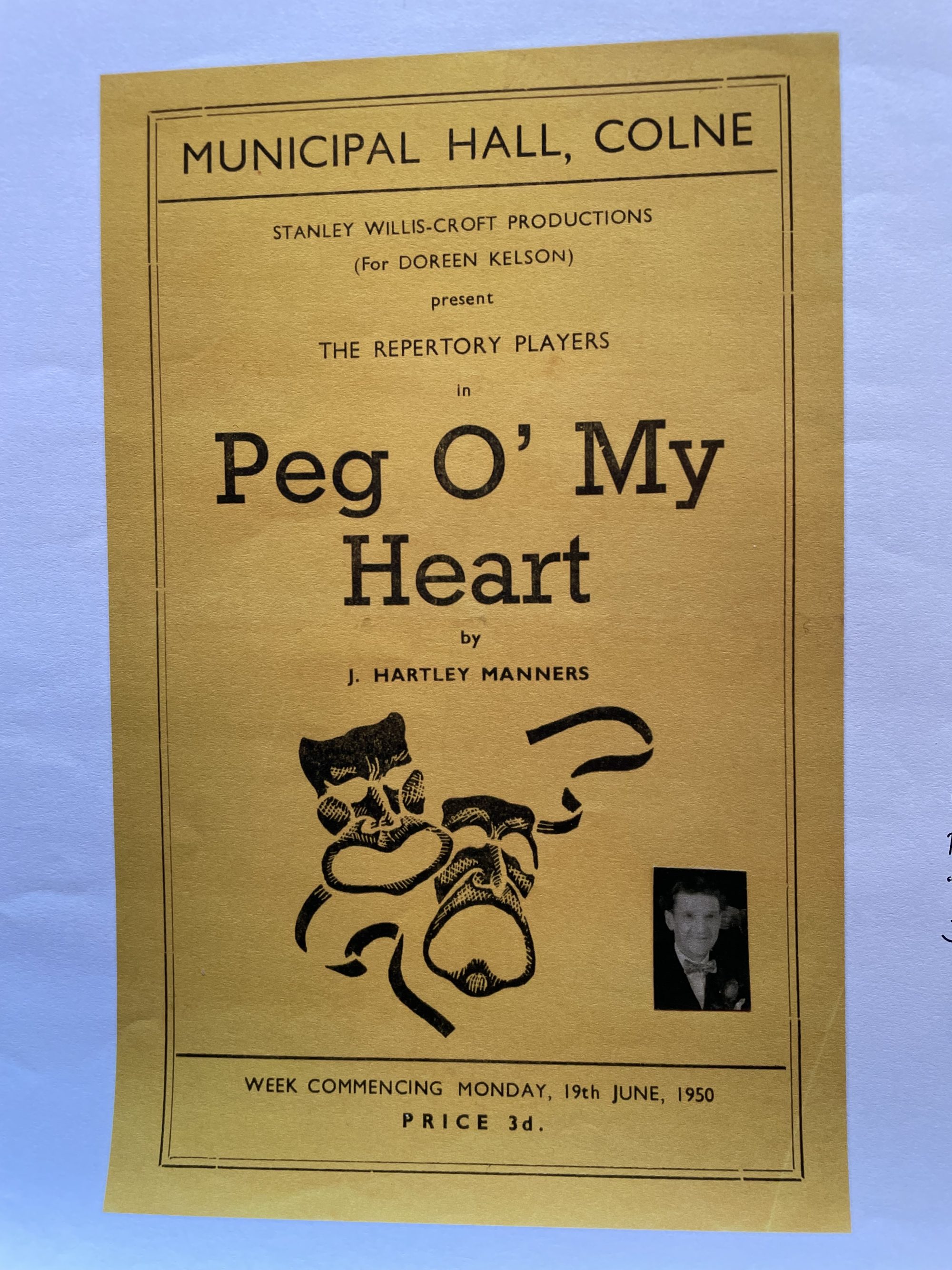
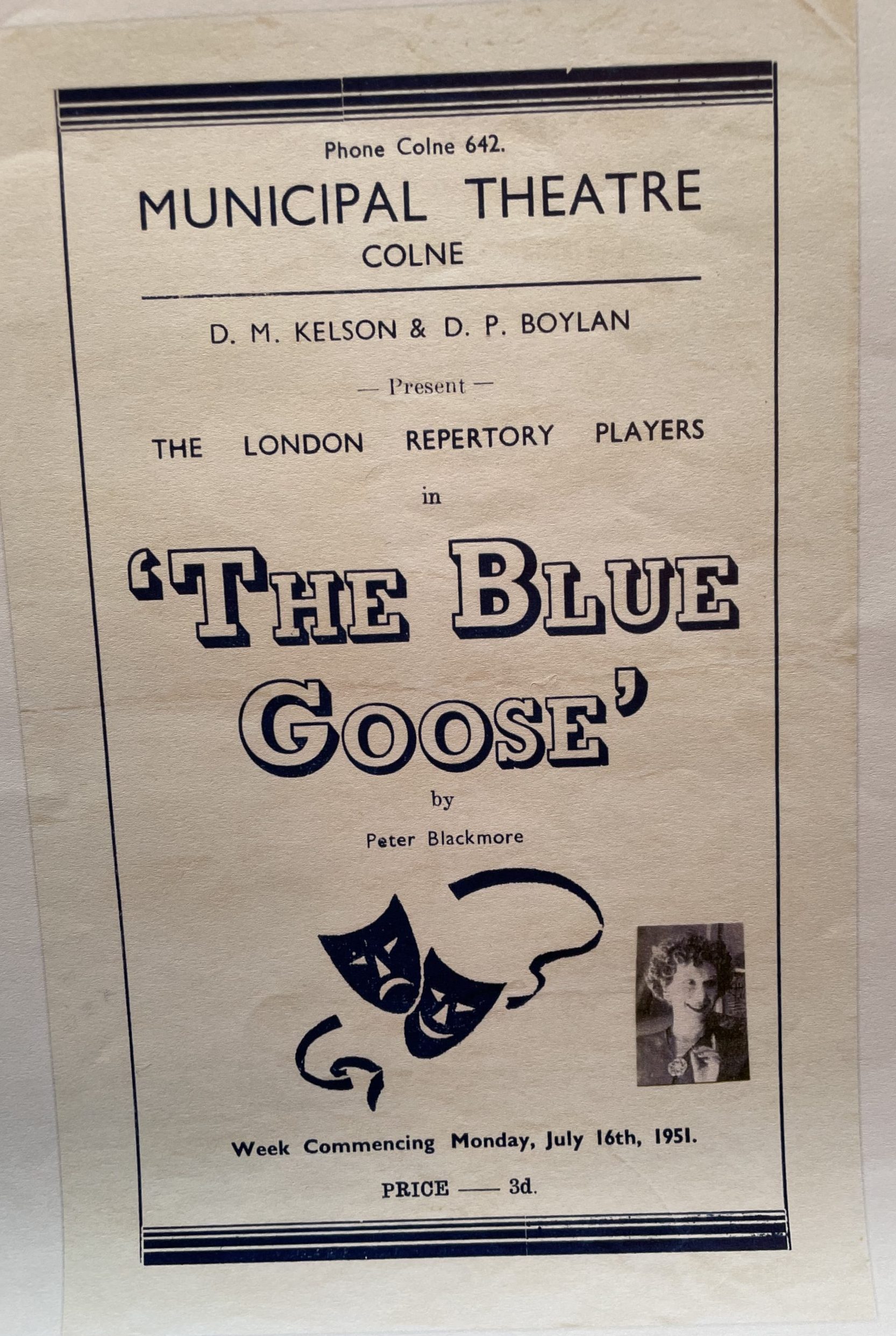
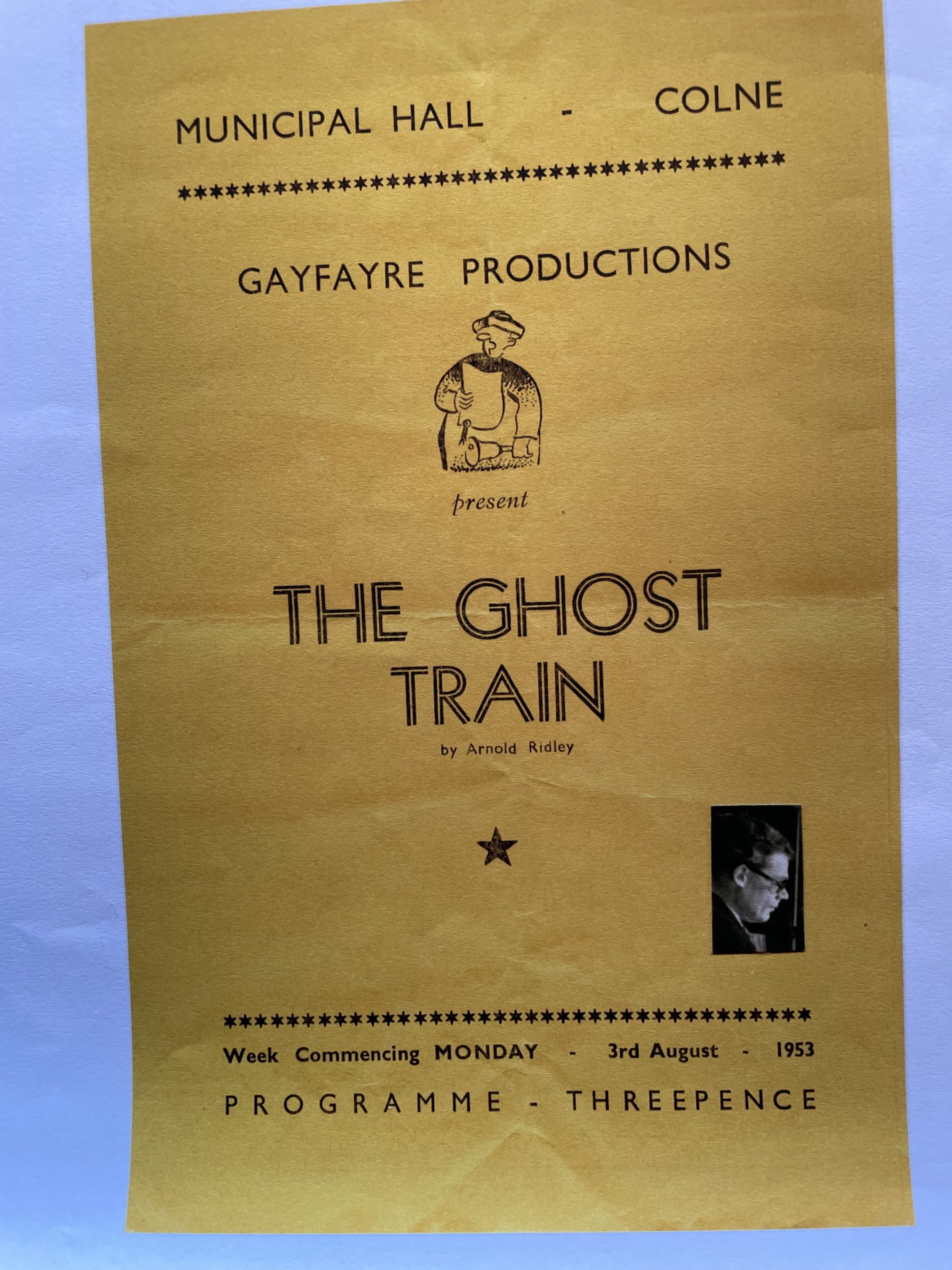
In 1951, the London Repertory Players assumed the theatrical mantle, with John Evans making occasional guest appearances. Two years later, Gayfayre Productions took charge, introducing one of their most successful productions, The Ghost Train. “It was a great success, bringing full houses for the entire week. The famous Arnold Ridley, who was in Dad’s Army, apparently got the best income from anything he ever did from the Ghost Train.”
“By 1952, the travelling repertory companies’ days were sadly at an end. The coronation killed it as everyone bought a television set,” explains Geoff. “It was life-changing.”

Geoff with Gayfayre Productions poster from 1953
As television screens entered homes across the country and the coronation beckoned a new age, the travelling repertory companies took their final bow. Still, seven decades later, the enchantment of their performances endured. Those who generously opened their homes still hold cherished memories of these charismatic performers. The legacy of those bygone days lives on, a testament to the enduring magic that once graced the stages of Colne.
ColneLife May/June 24

